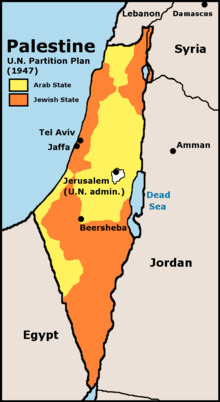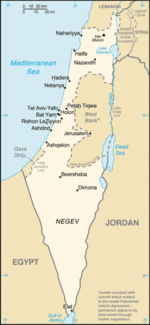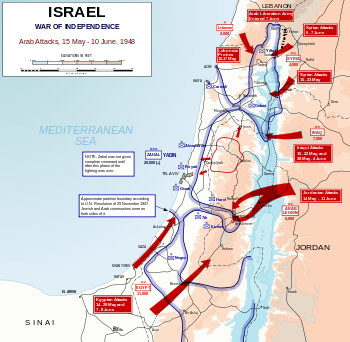Alternative Insight
Israel Reaches out to the Jews for a Rescue - A Machal Story
It came as an email, which extolled a video demonstrating Israeli initiative. By examining the events of yesterday with the knowledge of today, some dubious history and offensive expressions peppered the video. The content jolted my mind into remembering other incidents, one in which a person extolled her false relationship to victim hood, as if it were her badge of honor, and another where an archaeology class was interrupted to hear someone speak on anti-Zionism as anti-Semitism. Three of myriads of similar narratives and chest beatings of victimizations that reveal that anti-Semitic provocations reside within the community that most makes the charges - anti-Jewishness is consciously and unconsciously fostered by elements favorable to the state of Israel.The video is 'Above and Beyond: The Birth of the Israeli Air Force,' at http://vimeo.com/54400569 , by Playmount Productions. To view this private sampling of the reel, one needs to know the password, which is iaf. The film is another of the almost daily and endless stories of Israel's heroic stand against the forces of evil and its pre-eminence in defending the Jewish people from the onslaughts of mostly imaginary enemies, which the Zionists and Star of David nation have created from their words and deeds.
The film shows volunteer fighter pilots, the Machal, from the United States, flying obsolete German and British fighter bombers - purchased Czechoslovakian Avia S-109 (Messerchmitt 109) and later British Spitfires - to halt the advance of Egyptian troops at Ashdod in 1948 and supposedly turn the tide of battle to Israel's ultimate success. These were brave men, who were willing to sacrifice for their ideals. No intent to fault them. However, the film boasts of the manner in which they answered personal calls from Israeli representatives in the United States to fly planes for the nascent Israeli air force. Mention is made that "it is illegal of course," and of the cleverness in evading the FBI. Israel was unfair to the Machal.
Federal statutes have not been clear on the rights of Americans to fight for a foreign power. In Wiborg v. U.S., 163 U.S. 632 (1896), where Americans became involved in a Cuban insurrection, the Supreme Court endorsed a lower court ruling that it was not a crime under U.S. law for an individual to go abroad for the purpose of assisting one side in the fighting of a foreign war, except for one proviso - if someone has been recruited or hired in the United States, a violation of U.S. laws may have occurred. Did the Machal volunteers understand these violations of law, fully know the situation in the Levant, and had studied it carefully? if they had already migrated to Israel and fought from their own instincts, then their behavior could not be questioned. This was not the case; they were subjected to one-sided propaganda to defend not the Jewish community, as they supposed, but Zionists (not favored at that time by the mass of Jewish people) who had placed their own lives in jeopardy by insinuating themselves from distant lands upon an indigenous people. The casual manner in which the film treats the obvious cajoling of Jewish Americans, provoking them into deadly missions to risk their own lives and inflict deaths on others whom they may have known nothing about, and leading them to admitted violation of U.S. statutes, for whatever reason, is offensive. Can U.S. laws be violated by a coterie of special persons? This mocking manner to a lawful America infuriates the average American, and creates a backlash against the Jewish community.
That is not all.
The continuous propaganda that has accompanied Israel's 1948 War, of a brave and militarily weak few fighting against heavy odds for survival, helped steer acceptance of Israel's expansion for security until a chastened world learned that the expansion also served to gain assets - land, water and power - and was performed without attention to the disasters inflicted upon the indigenous people.The Machal did help Israel fight a war against odds, much less heavy than portrayed, but not for survival; they helped Israel fight a war to protect territorial gains from a conflict waged months before May 14, before the day Israel declared itself a state and faced several Arab armies. The cycle of violence that preceded May 14, 1948 usually ended with Zionists obtaining new territory and Palestinians leaving their ancestral homes. Samih K. Farsoun in his book, Palestine and the Palestinians, P.114, Westview press, 1997, summarizes his perspective of the events:In April 1948 the Haganah and its international volunteers launched major operations throughout Palestine. The first was an offensive to occupy and destroy Palestinian villages along the Jaffa-Tel Aviv road. A pivotal battle developed a short distance west of Jerusalem hilltop town of Al-Qastal (Castel).... Simultaneously, Irgun and Stern terrorists attacked and massacred most of the 245 inhabitants of the village of Deir Yassin, 3 miles away from Al- Qastal. These events and the defeat of Qawuqji's diversionary assault on a Jewish colony to the north sent powerful shock waves throughout Palestine and the rest of the Arab world. It led the Arab states, assembled in League, to consider intervention in Palestine with their regular armies.
Beginning in the second half of April, Jewish military assaults led to the fall of Tabariyya (April 18), Haifa (April 23), Jaffa (April 25), West Jerusalem (April 26), eastern Galilee (April 28), the central plain between Latrun and Ramleh (May 8-9), Safad (May 11-12), Beisan (May 12), and the Naqab villages (May 12). The attacks were brutal. Through terror, psychological warfare, and direct conquests, Palestine was dismembered, many of its villages purposefully destroyed and much of its people expelled as refugees.History, subject to interpretation, shows that the Arab armies did not primarily invade the Israel of the Partition Plan, but also arrived to stop Israel from seizing substantial territory that was not allowed to it by UN Proclamation 181 and to halt the exodus of Palestinian civilians.
Not well recognized is that the territory awarded to the Palestinians in Resolution 181 extended along the coast to present day Ashdod, 18 miles (30 kms) south of Tel Aviv, and that Israelis maintained presence in these areas. Also, not sufficiently explored is that the the Egyptian army initially refrained from entering into territory awarded to the Zionist state. Egypt's army captured the Yad Mordechai kibbutz, which was in Palestinian territory, and stopped at Ashdod. The Israeli narrative and the film 'Above and Beyond: The Birth of the Israeli Air Force' claim the offensive stalled due to the attacks by the reconstructed Messerchmitts, flown by the Machal. This is only conjecture; it could be possible, but it is difficult to believe that a few planes with limited armaments could stop an army of ten thousand. An Egyptian army then crossed but did not occupy the Negev (awarded to Israel), and attacked Jewish settlements in the path of its advance, proceeded to defend the town of Beer Sheeva, which had also been originally awarded to a Palestinian state, and continued through Palestinian territory to safeguard Hebron and other parts of the new Palestine. Egyptian military attacked Tel Aviv by air and sea, but the Egyptian army did not initially occupy territory awarded to Ben Gurion's government.
Maps of territory alignments lean to the previously stated thesis. The new Israel captured much of the territory allotted to the Palestinians, including Jaffa (an Arab city surrounded by Israel), Beersheba, Ashkelon and Ashod; essentially throwing the Arabs away from the sea and into the desert. The map describing the paths of Arab armies also reveals that the engagements occurred principally in Palestinian areas. Arab regiments were repulsed from entering deeply into the areas awarded to the Israel described by UN Proclamation 180.
Israeli attitudes, generated from fighting and reprisals after the Partition Resolution, defined a counter narrative - a genuine belief that that the Arab invasion had been planned immediately after the resolution on partition and its purpose was “to push the Jews into the sea.” It was natural that distrust and fear motivated both sides to to war against one another; that each attack provoked a reprisal until attack could not be distinguished from reprisal. Despite the arguments and counter-arguments, the total evidence does not favor Israel's stance: (1) The Zionist organization, in its proposals to the 1919 Paris Peace conference, requested entire Palestine, as well as Lebanon above Sidon to the North, parts of the Sinai, and a section of Jordan, almost to Amman, as their territory, all of which contained the important aquifers.(2)
Israeli military had invaded much of Palestine before Arab armies entered the battle. (3) The alignment of forces and results of the fighting, by which Israel occupied most of Palestine, contradict the Israeli belief, and (4) Arab expeditions were incapable of taking over the entire country.
Let's be logical. If a group living in a foreign nation proposes to assemble forces to seize someone else's territory and then carries out plans to accomplish the task, is it not expected that the victim will struggle to defend its land? The Israeli narrative intimates that the Palestinians had no right to defend themselves against a foreign usurpation of their lands, and Arab nations, also intended for partial occupation, had no right to assist the victim.
Did the Machal know the reasons for the Arab armies entering Palestine?
Did they sense it unfair to ask them to fly derelict aircraft, which was not totally flight tested for flight and would endanger their lives?
One Machal officer claimed he was in Tel Aviv when he saw refugees coming in from the death camps and "then and there he knew the reason he came." Did he know that the refugee camps in Europe had been almost totally cleared by 1948 and, if there was anyone previously from the death camps, that bringing them into another deadly situation was not beneficial to their debilitated health or a wise thing to do?The mind set that overlooks the entire nature of the creation of the state of Israel is revealed in many episodes and begs the question: "How has this mind set developed?"
A meeting in which it is mentioned that Israel's policies can bring about the genocide of the Palestinian people, provokes a pro-Israeli to loudly exclaim, "I don't want my holocaust to be diminished by another holocaust." It was doubtful that this person was old enough to have been in the European holocaust, nor born in Europe. Her mind set established herself as a willing victim, an heir to previous calamities only because she was Jewish, and this gave her special recognition. She was saying that a possible genocide of the Palestinian people cannot be recognized because it interferes with her victim hood and did not realize that holocaust survivors and those in their graves may be saying to her, " What right do you have to use our tragedy for your own purposes?"
In 1985, during a lecture on biblical archaeology at a Jewish community center in Maryland, a Rabbi from Boston visited the class. The interruption, portrayed as a privilege, had the Rabbi proceed to ask the class, "Is anti-Zionism actually anti-Semitism?" and then, without waiting for a reply, explain why it must be true. It is doubtful that many in the group ever thought about this or cared to think about it. Some may have believed the opposite was true; that Zionism intimitated nations to question the loyalty of their Jewish citizens and promoted anti-Jewish feeling. It did not occur to the Rabbi that interrupting a captured class on archaeology to ask this provocative question demonstrated the opposite to what he intended to show.
All three events symbolize the manner in which minds are manipulated to support the Zionist adventure.
Israel behaves as if it is rescuing the Jews (from what?). Actually, the Jews are being called upon to constantly rescue Israel. The Israeli narrative starts with anti-Semitism breeding anti-Zionism and then forming anti-Israel attitudes.
The reverse seems more true. Valid antagonism toward the state of Israel, a nation seen as a development of Zionism, creates antipathy to Zionism. Proclaimed to be a Jewish state for Zionists, it is a short route of thought to transfer derogatory sentiments against Israel and Zionism to the Jews. An Israel that cares for the Jewish establishment should be cognizant of its responsibilities to the Jews. It is not cognizant and encourages anti-Semitism.
alternativeinsight
january, 2013HOME PAGE MAIN PAGE 
alternativeinsight@earthlink.net
No Need to Login to post a comment.
comments powered by Disqus


